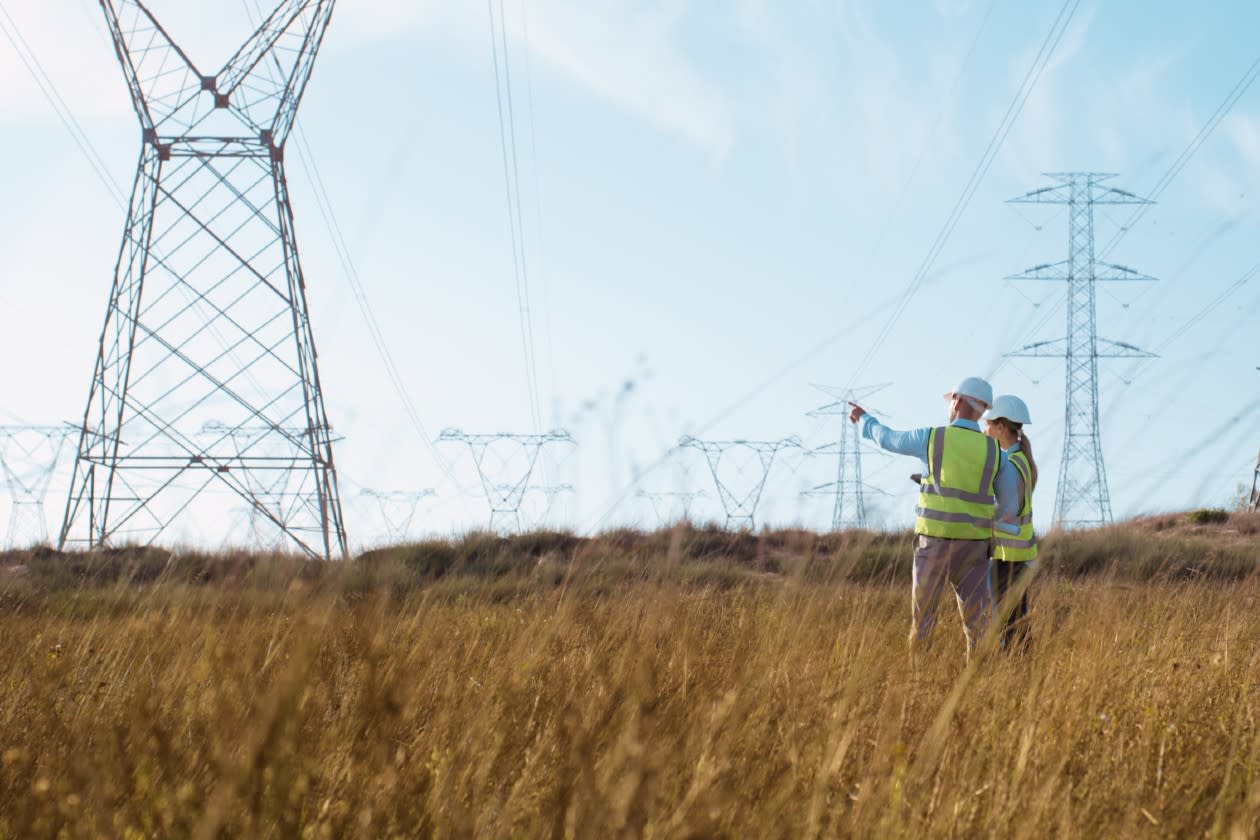SSE’s first-half revenue rose by 4% to £4.6bn, helped by inflation-linked tariff increases in Transmission.
Underlying operating profit fell by 24% to £655mn. The sharp decline was by Distribution and Renewables, with the latter suffering from unfavourable weather.
Free cash outflows worsened from £46mn to £0.6bn, due to increased levels of investment. Underlying net debt rose by £1.6bn to £11.4bn.
Full-year profit guidance is expected to be announced later in the year.
SSE also announced a £33bn five-year investment plan to 2029/30. Around £27bn is set to be invested in its regulated UK electricity networks, with the remainder to be spent on renewables and system flexibility projects.
To fund the investment, SSE is issuing new equity to raise £2bn (around 9% of its market cap pre-announcement).
The shares rose 12% in early trading.
Our view
SSE saw its first-half profits drop sharply due to one-off items benefitting last year’s numbers. But the underlying business remains in good shape, and markets reacted positively to the group’s new investment plan.
SSE is set to spend £33bn over the five years to 2029/30, with the vast majority of that earmarked for upgrading its UK electricity infrastructure. This planned spending was ahead of market forecasts and is expected to help fuel high single-digit earnings growth over the coming years.
Renewables remain a key part of the plan, with billions of pounds also set to be invested in expanding their capacity. The shift to renewables is a bold and admirable move. But comes with a hefty dose of risk - they're not always reliable. To some degree, it's at the mercy of mother nature.
That’s why more flexible gas-fired plants are still part of the energy mix. They complement the renewables segment well and are on hand to plug any shortfalls in energy output when adverse weather comes along.
On the regulated networks side of things, SSE delivers electricity across Scotland and Southern England. This is classic utility territory - with revenues predictable and profits closely regulated.
A portion of these regulated revenues are positively related to investment levels, and are also protected against inflation. But the additional return isn't received until sometime after the service has been delivered and the investment has been made, which can cause a drag on cash flows in the meantime.
To help cover the costs in the meantime, SSE is raising £2bn by issuing new equity shares. It’s a wise move to prevent an overstretched balance sheet. The net debt-to-EBITDA (cash profit) ratio is expected to rise in the coming years but remain below the group’s 4.5x limit. That’s not too concerning given the group’s revenue predictability, but investors will want to see that the capital is generating acceptable returns.
In recent years, many areas of SSE's business have benefitted from high prices and volatility. But with market conditions seemingly less turbulent now, profits in the flexible thermal and gas storage division look set to remain subdued this year. Other areas of the business will have to step up to pay the investment bill. Any missteps on this front could dent investor sentiment.
The valuation remains below the long-run average, and we see further upside on offer. We’re optimistic about the group’s long-term prospects. But in the near-to-medium term, SSE faces some uncertainty as it tries to navigate the challenges of building for the future.
Environmental, social and governance (ESG) risk
The utilities industry is high-risk in terms of ESG. Management of these risks tends to be strong, with European firms outperforming their overseas counterparts. Environmental risks like carbon emissions, resource use and non-carbon emissions and spills tend to be the most significant risks for this industry. Employee health and safety and community relations are also key risks to monitor.
According to Sustainalytics, SSE’s management of ESG risk is strong.
It has a board-level committee overseeing ESG issues such as health, safety, and environmental programmes. SSE ceased operating its last coal plant in 2020, and it has a large pipeline of wind projects. However, there is new and existing gas- and oil-based capacity. The regulator has also fined it several times for breaches related to charges imposed on customers.
SSE key facts
All ratios are sourced from LSEG Datastream, based on previous day’s closing values. Please remember yields are variable and not a reliable indicator of future income. Keep in mind key figures shouldn’t be looked at on their own – it’s important to understand the big picture.
This article is original Hargreaves Lansdown content, published by Hargreaves Lansdown. It was correct as at the date of publication, and our views may have changed since then. Unless otherwise stated estimates, including prospective yields, are a consensus of analyst forecasts provided by LSEG. These estimates are not a reliable indicator of future performance. Yields are variable and not guaranteed. Investments rise and fall in value so investors could make a loss.
This article is not advice or a recommendation to buy, sell or hold any investment. No view is given on the present or future value or price of any investment, and investors should form their own view on any proposed investment.


